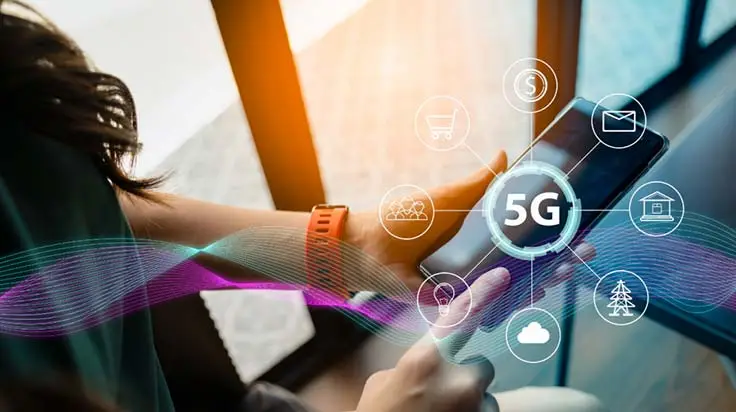The Future of Telecom: How 5G Will Transform Our Connected World

The telecommunications industry is on the brink of a revolution. With the advent of 5G technology, the world is about to experience a dramatic transformation in how we connect, communicate, and interact with the digital universe.
With 5G, telecom providers will offer services that were once considered science fiction. From smart cities where infrastructure is managed in real-time to industries powered by seamless machine-to-machine communication, 5G will be the backbone of the next digital revolution. For detailed insights and updates on the global impact of 5G, you can follow Globe Rage.
The Impact of 5G on Industries
One of the most significant ways 5G will transform our world is through its impact on various industries. Manufacturing, healthcare, entertainment, and transportation will all undergo profound changes as they integrate 5G capabilities into their operations.
In healthcare, 5G will revolutionize telemedicine, enabling doctors to perform remote surgeries with robotic instruments and allowing for real-time monitoring of patients’ health through wearable devices.
The entertainment industry will see an explosion of new experiences with the advent of 5G. Ultra-high-definition streaming, cloud gaming, and virtual reality experiences will become more immersive and responsive, delivering content that adapts instantly to user input.
Transportation will also be transformed by 5G. Autonomous vehicles, smart traffic systems, and connected public transportation will rely on the near-instantaneous communication that 5G enables. Imagine a world where traffic lights automatically adjust to the flow of traffic or where autonomous vehicles communicate with each other to prevent accidents.
Smart Cities and IoT: The 5G Revolution
The rise of smart cities is another area where 5G will have a profound impact. Smart cities leverage technology to improve urban living, using data and communication technologies to manage resources more efficiently and enhance the quality of life for residents.
Imagine a city where traffic lights adapt in real time to traffic conditions, where garbage bins alert sanitation workers when they need to be emptied, and where energy usage is optimized based on demand. 5G will allow these devices to communicate with each other in realtime, creating a network of interconnected systems that work together to enhance the quality of life.
The Internet of Things (IoT) is at the heart of the smart city movement, and 5G is the key to unlocking its full potential. With its ability to support a massive number of connected devices simultaneously, 5G will allow for the seamless integration of IoT devices into everyday life.
As a result, smart homes, smart cars, and even smart healthcare will be developed, with gadgets interacting with one another to offer a more streamlined and effective experience.
Challenges and Considerations
While 5G promises to revolutionize our connected world, it also presents new challenges and considerations for the telecom industry. One of the most significant challenges is the need for a vast infrastructure upgrade.
5G networks require the deployment of new antennas, base stations, and other equipment, which is both time-consuming and expensive. Telecom companies will need to invest heavily in infrastructure to support the rollout of 5G, and this will likely lead to increased costs for consumers in the short term.
Another challenge is ensuring that 5G networks are secure. With more devices connected to the internet than ever before, the risk of cyberattacks increases exponentially. Telecom providers will need to implement robust security measures to protect their networks and the data that flows through them.
Finally, there are regulatory considerations. Governments around the world are grappling with how to regulate 5G networks, particularly with regard to spectrum allocation and privacy concerns. Telecom providers will need to navigate a complex regulatory landscape as they roll out their 5G networks, ensuring that they comply with local laws and regulations while still delivering on the promise of 5G.
The Road Ahead
Despite these challenges, the future of telecom with 5G at the helm is incredibly bright. The technology promises to reshape industries, transform urban environments, and revolutionize the way we connect with each other and the world around us.
As 5G becomes more widespread, we can expect to see innovations that build on this foundation, from smart homes and cities to autonomous vehicles and advanced healthcare systems.In the coming years, telecom providers will play a crucial role in shaping this future, working to overcome the challenges of infrastructure, security, and regulation while delivering the next generation of connectivity.
For consumers, this means a future where our devices are more connected, our cities are smarter, and our experiences are more immersive than ever before.
